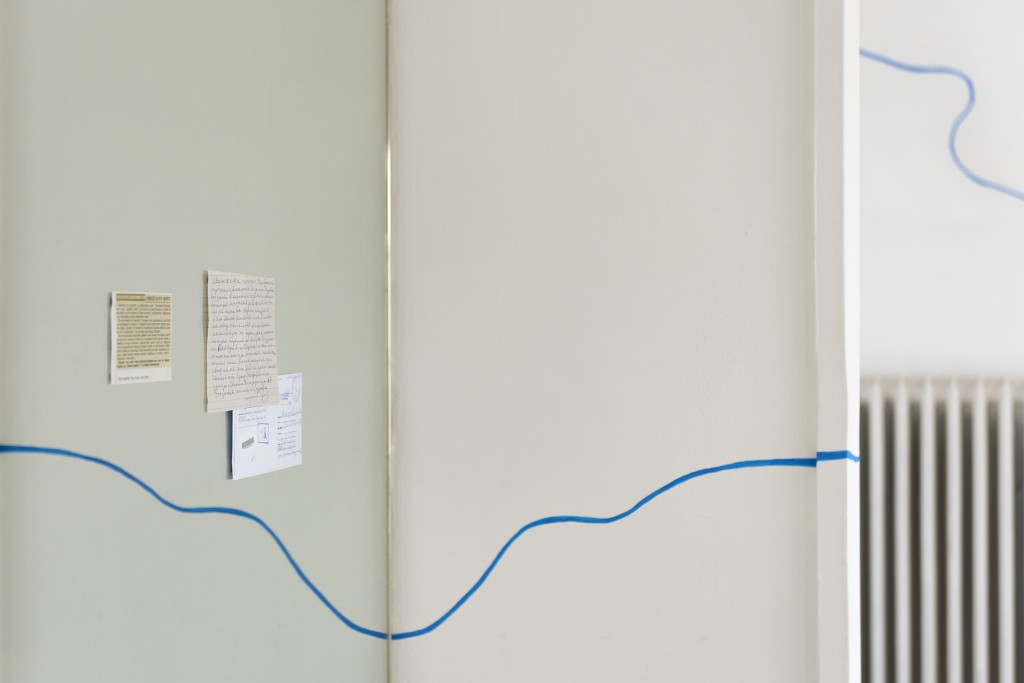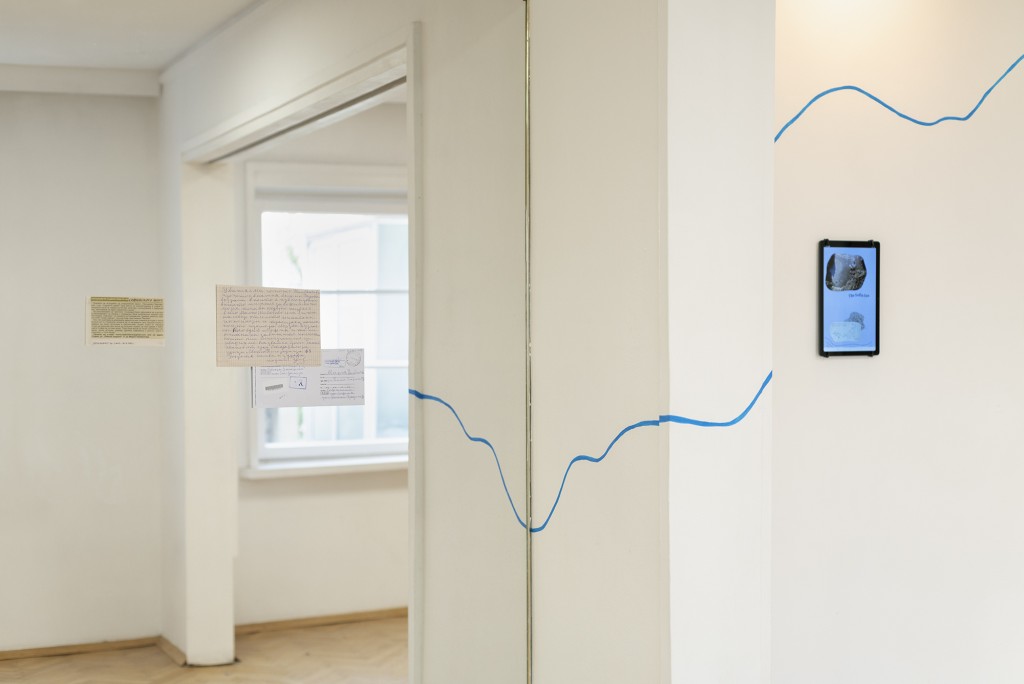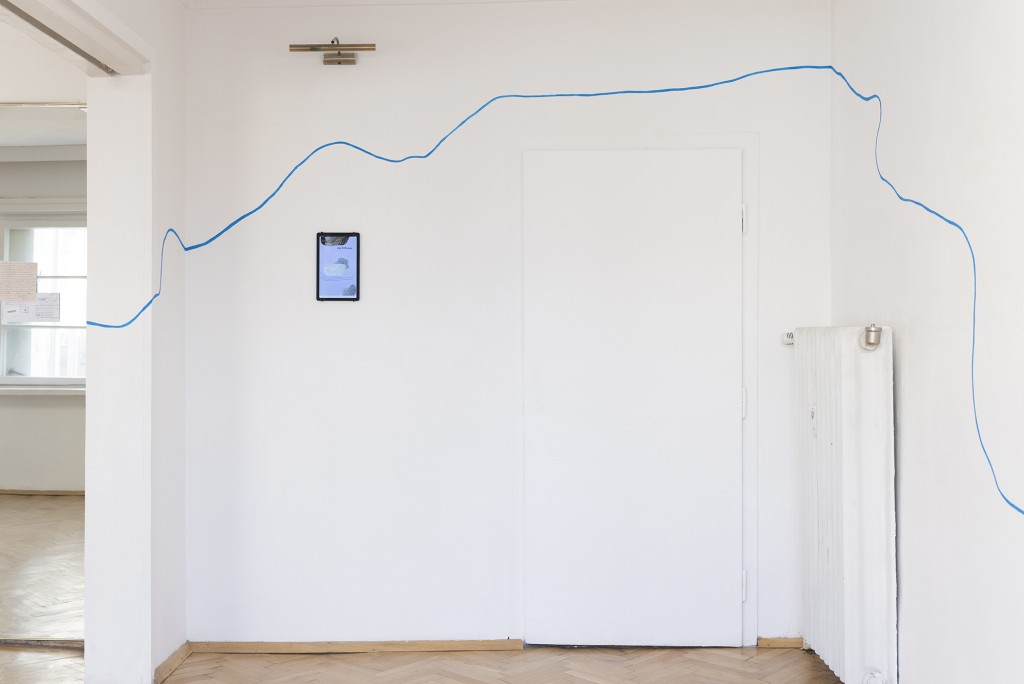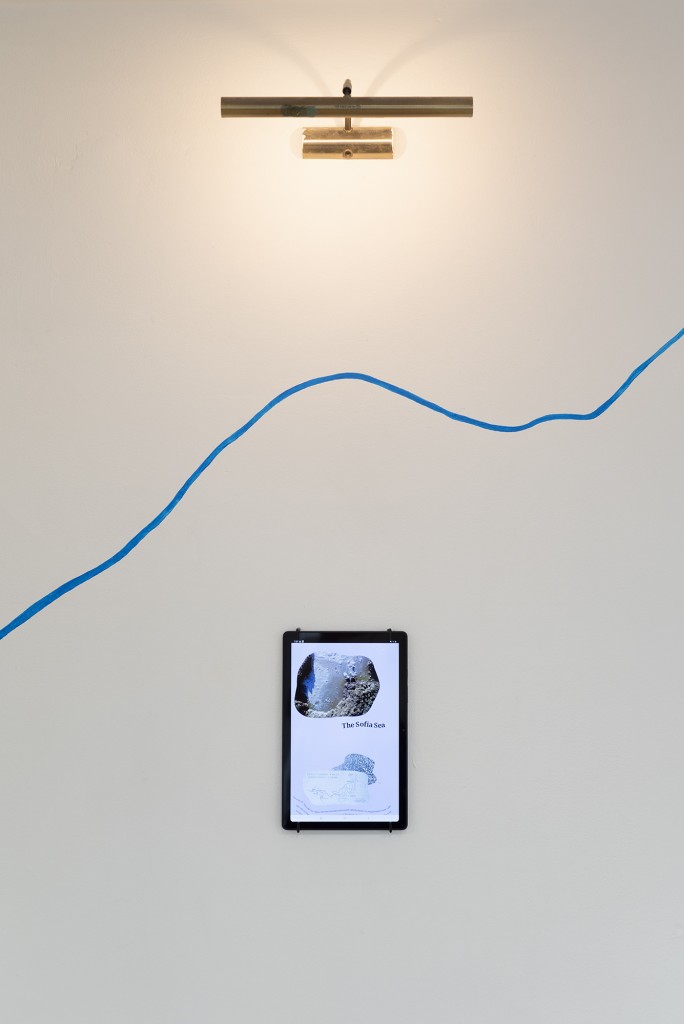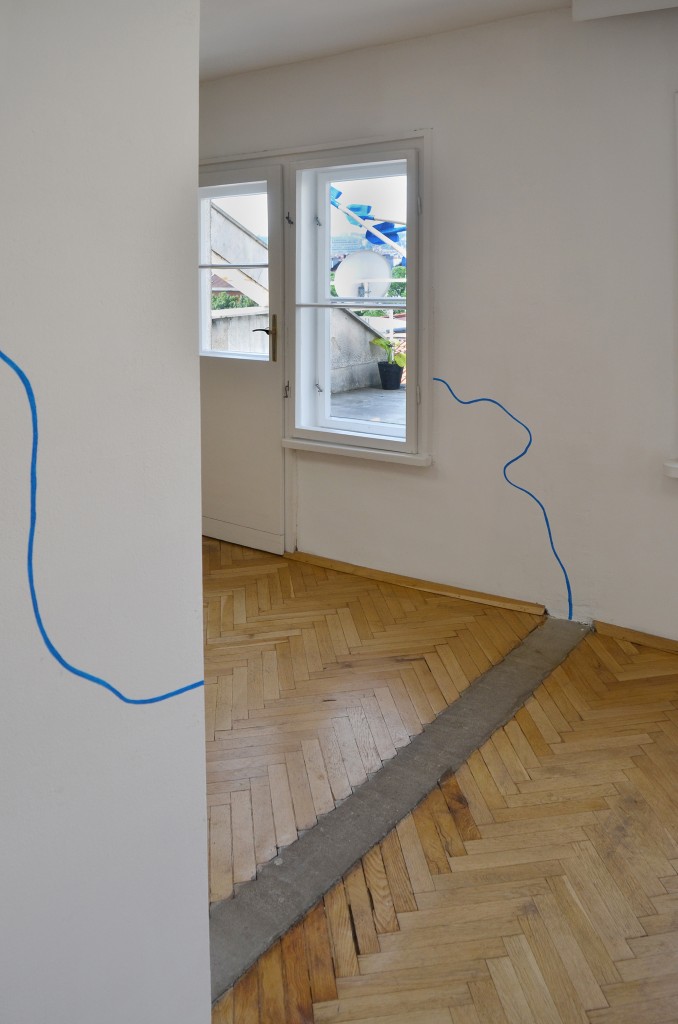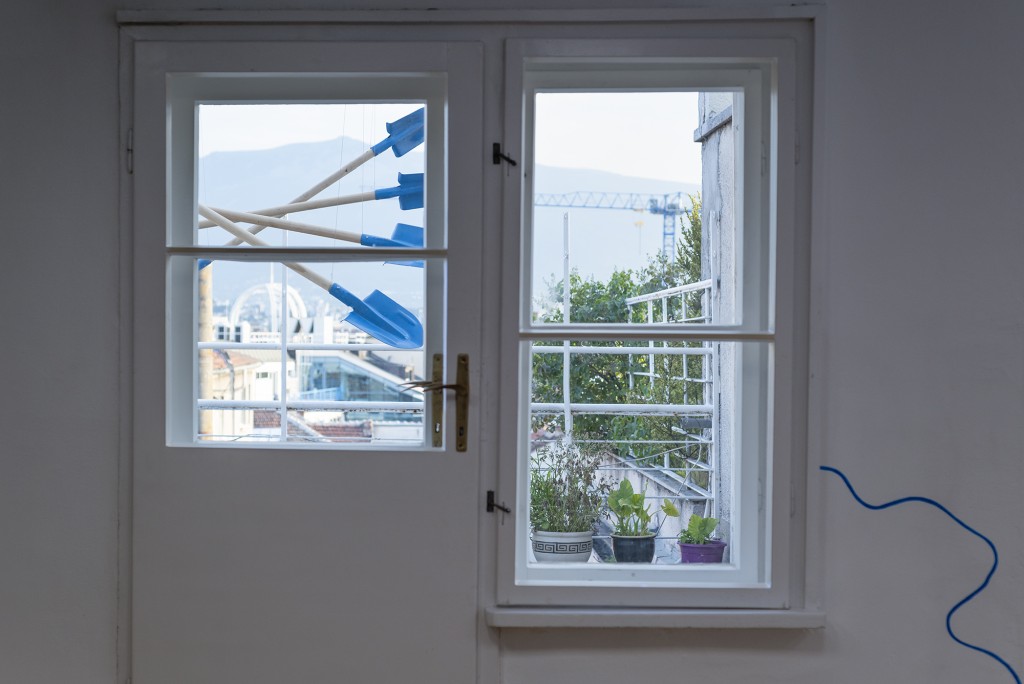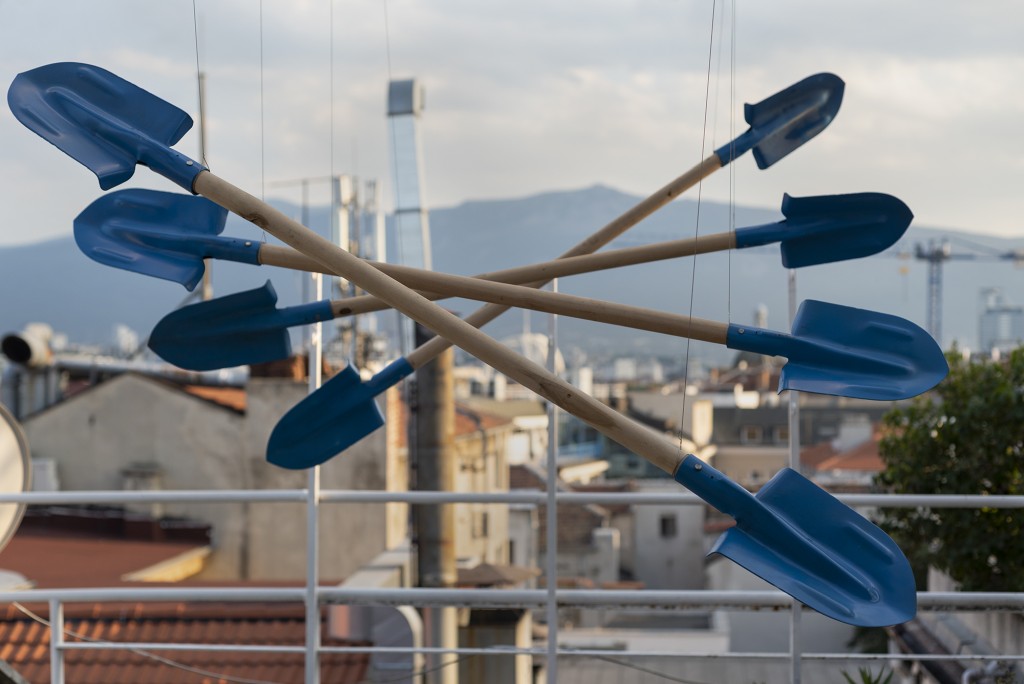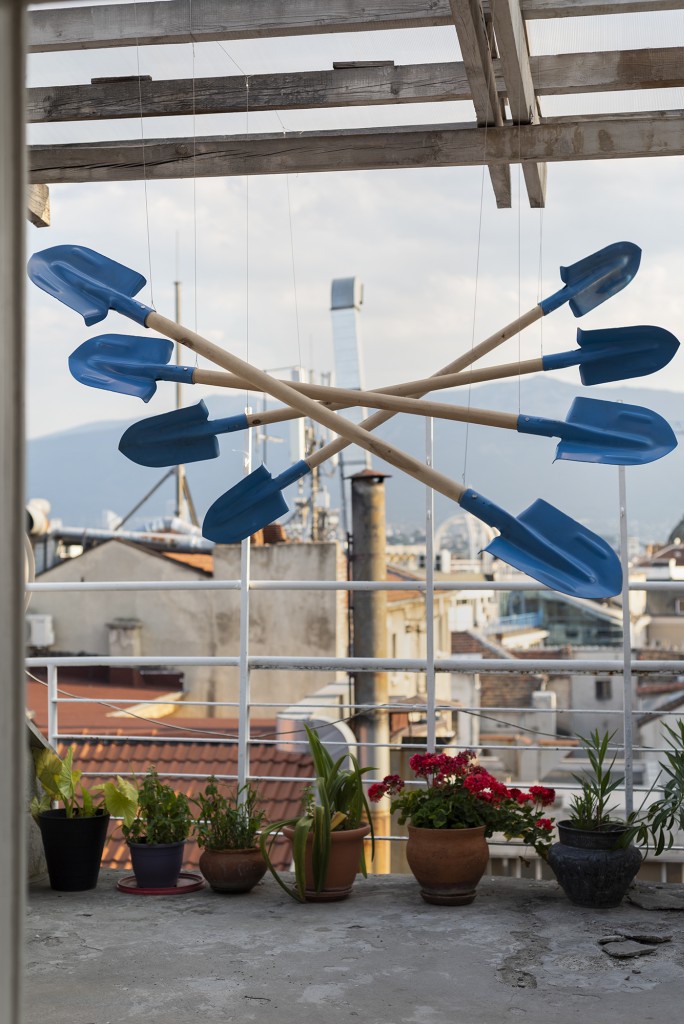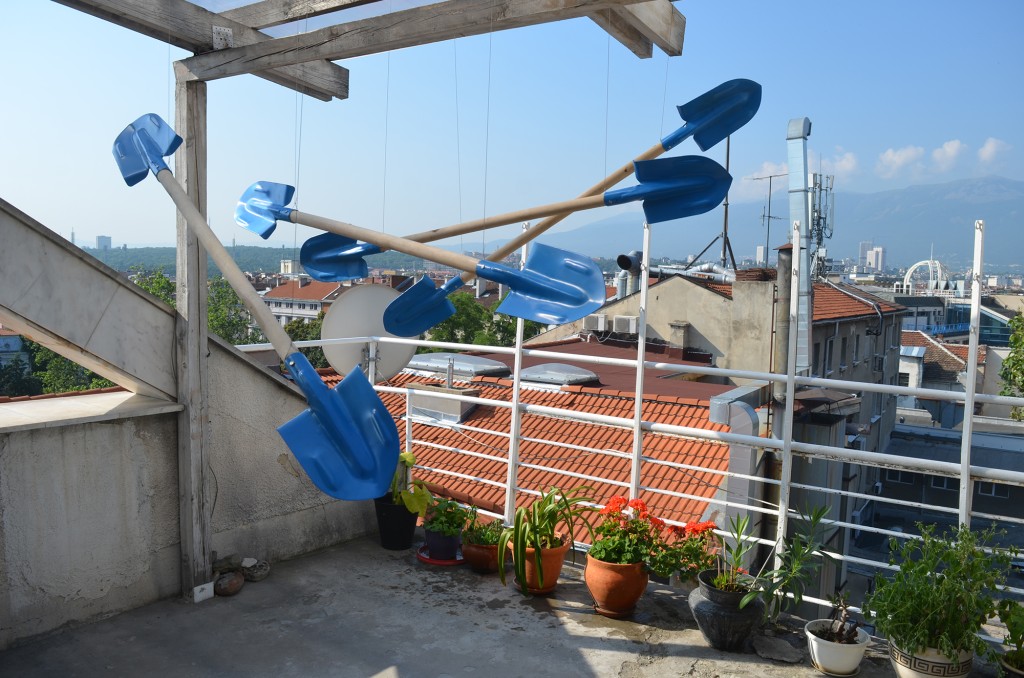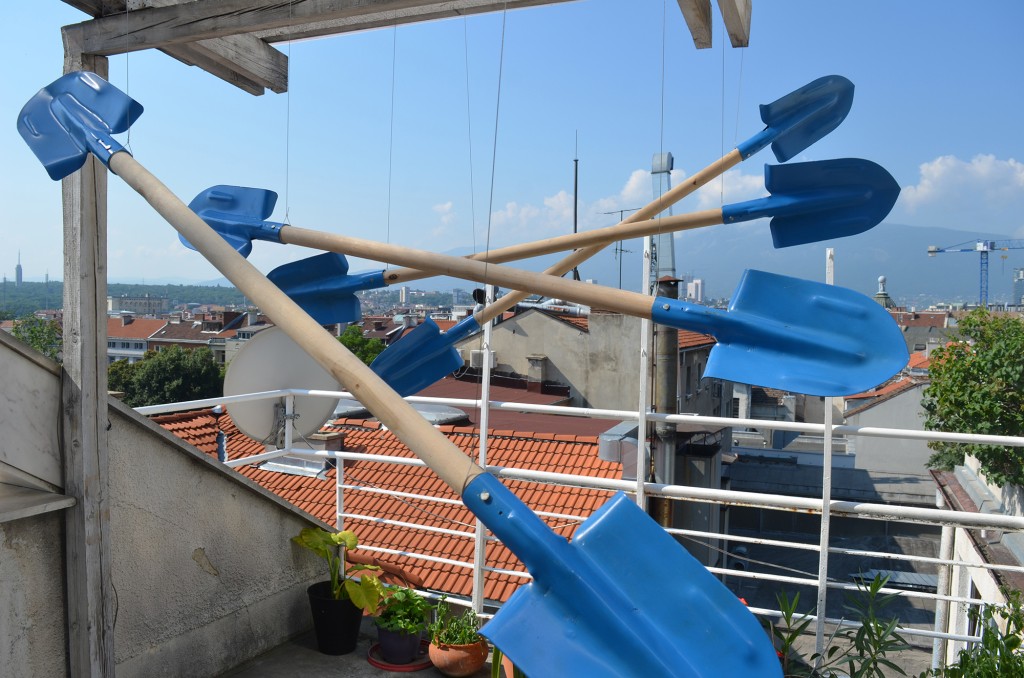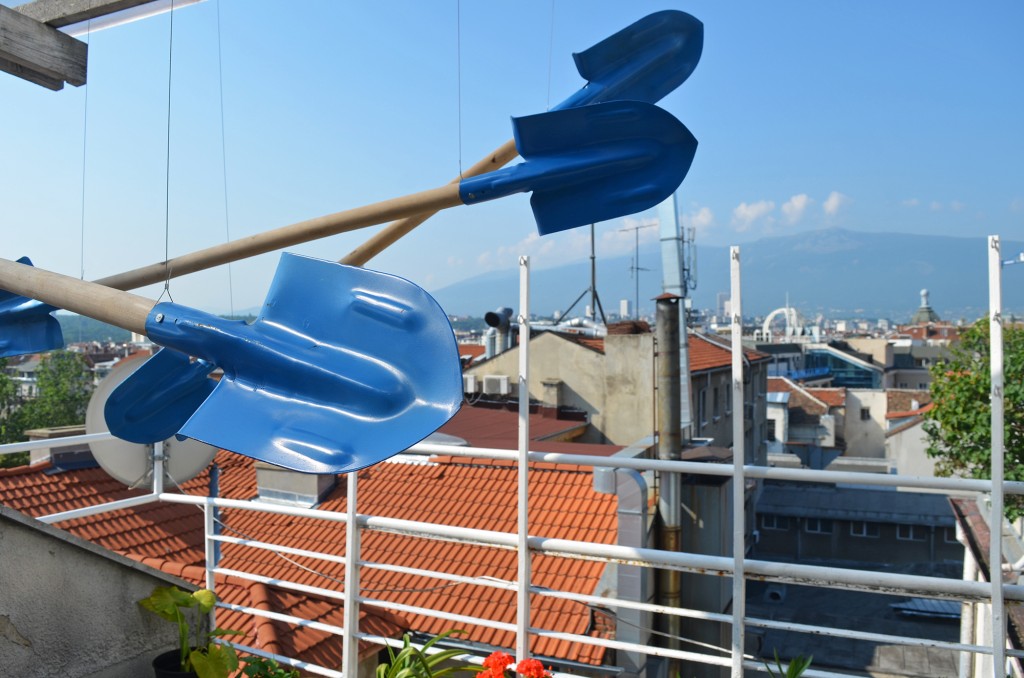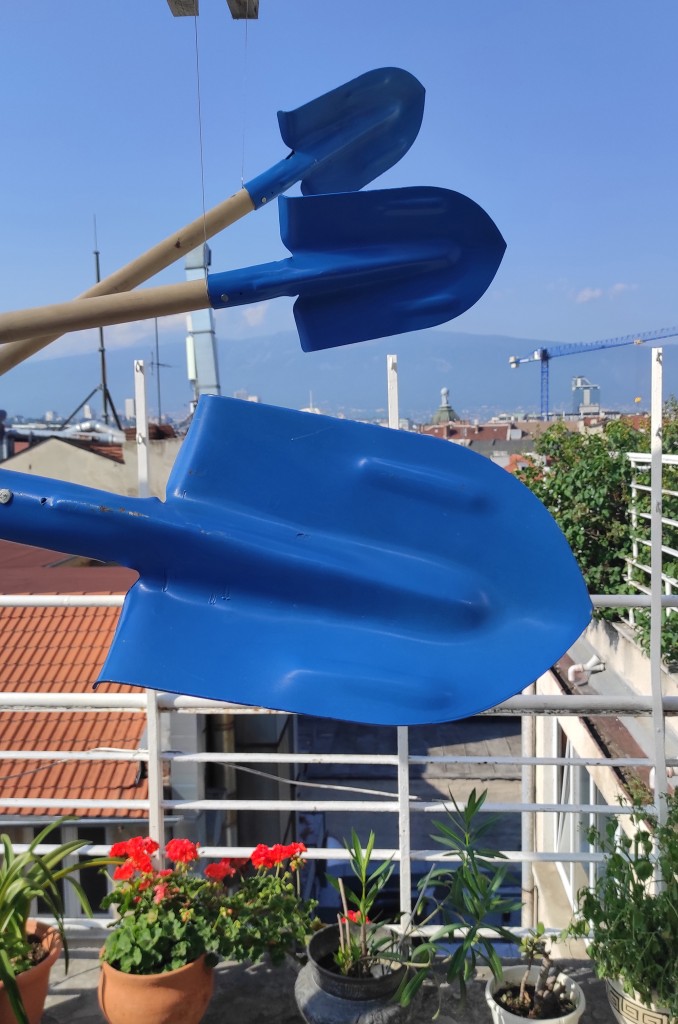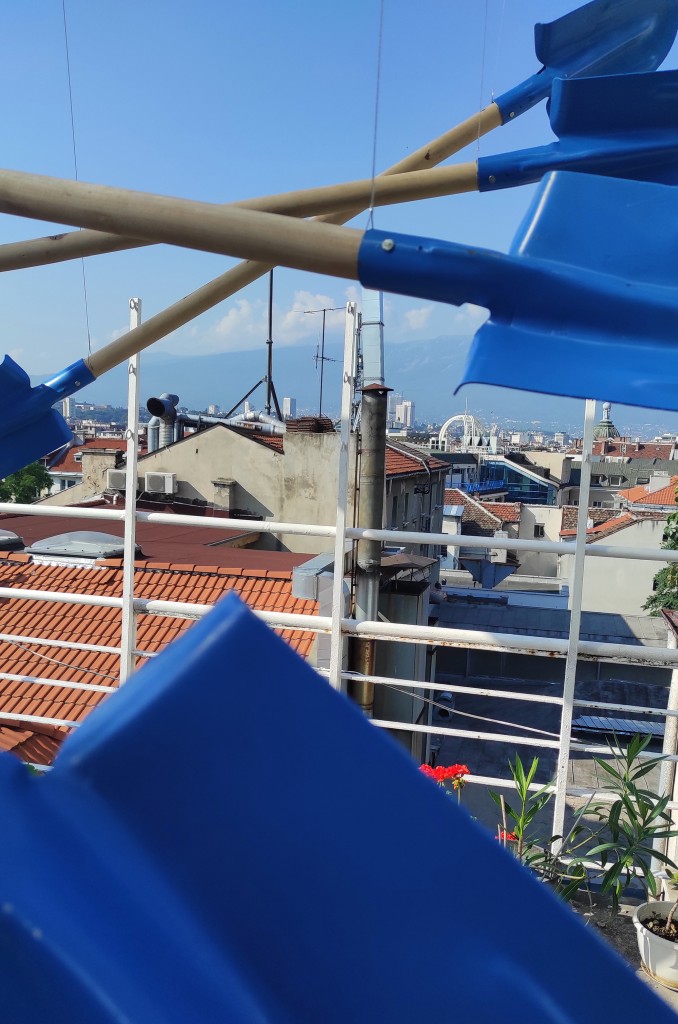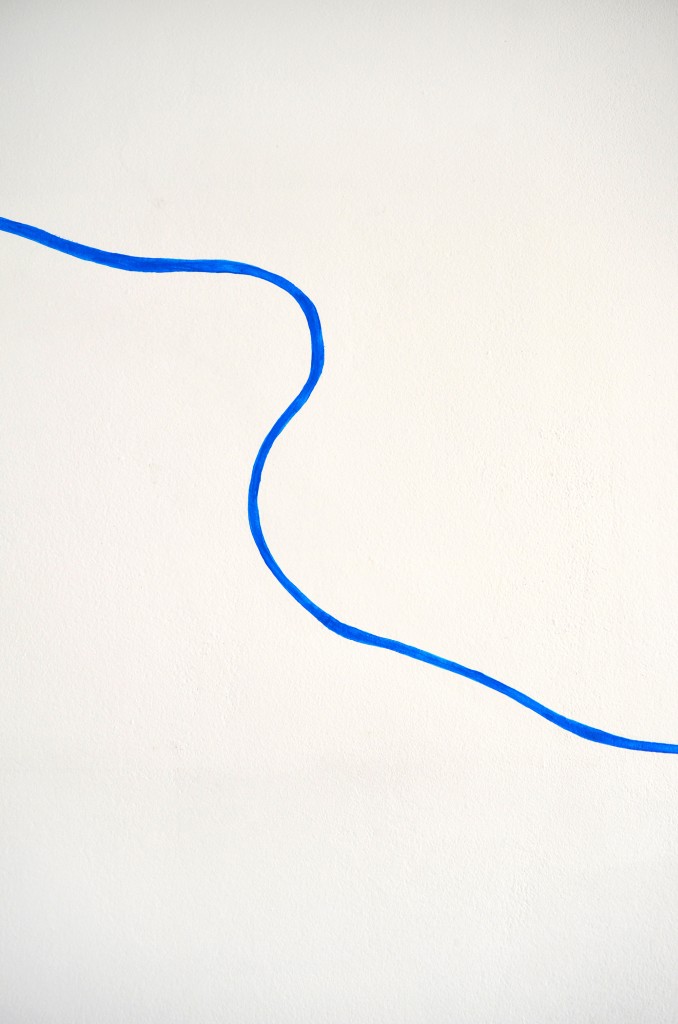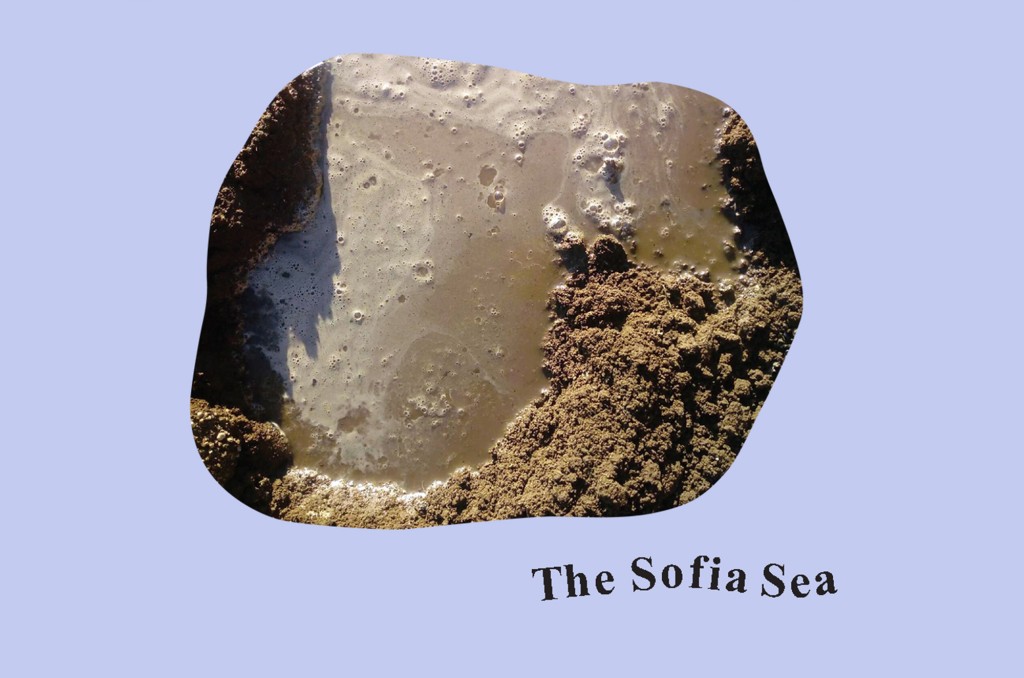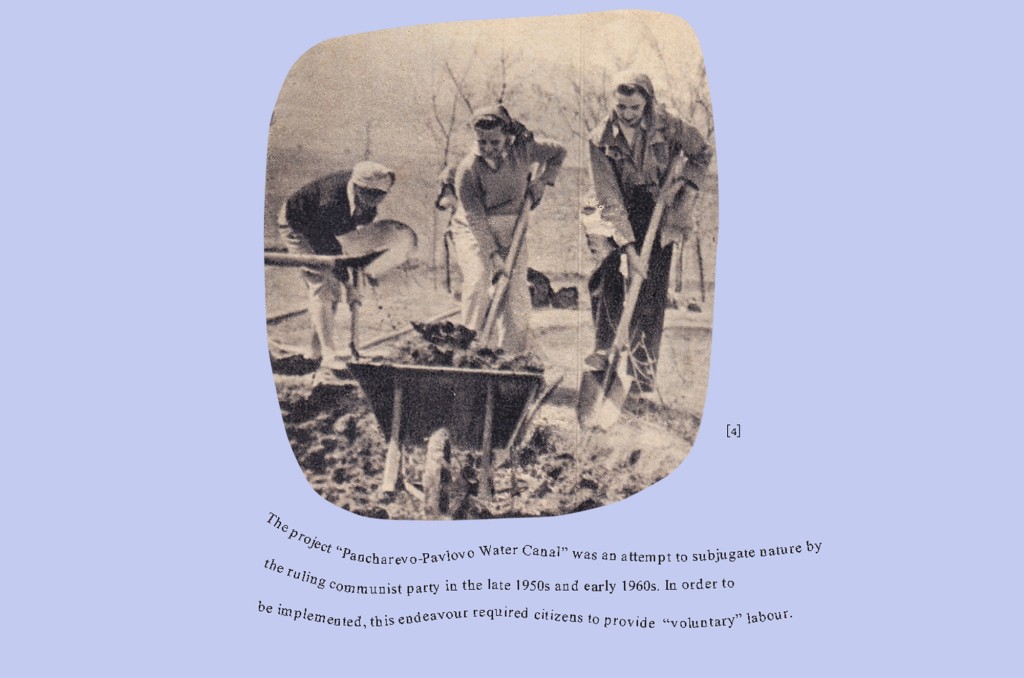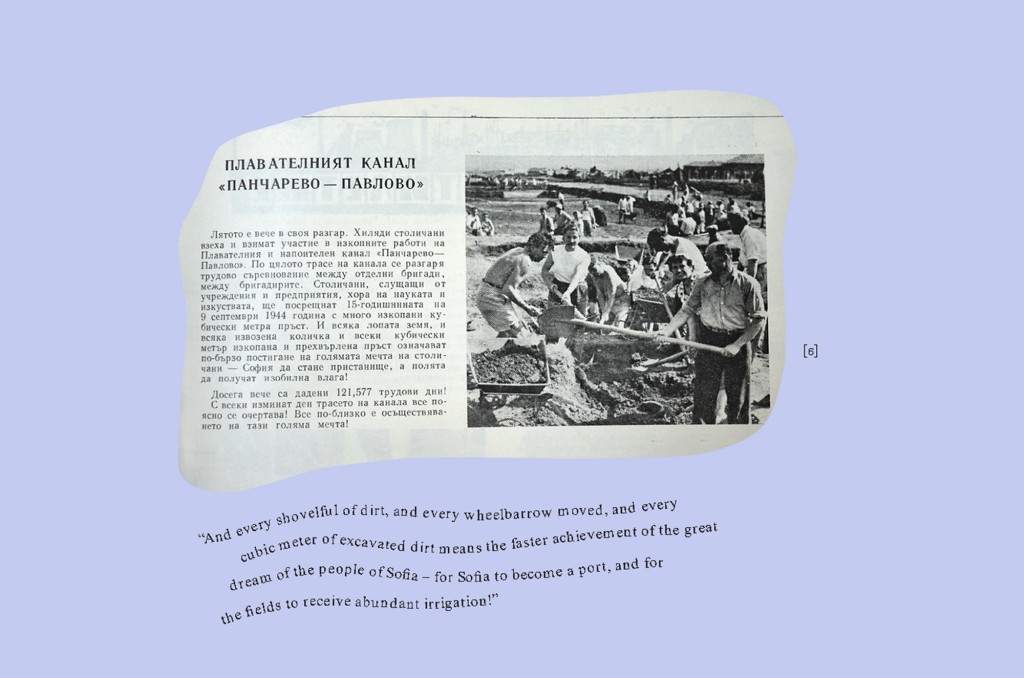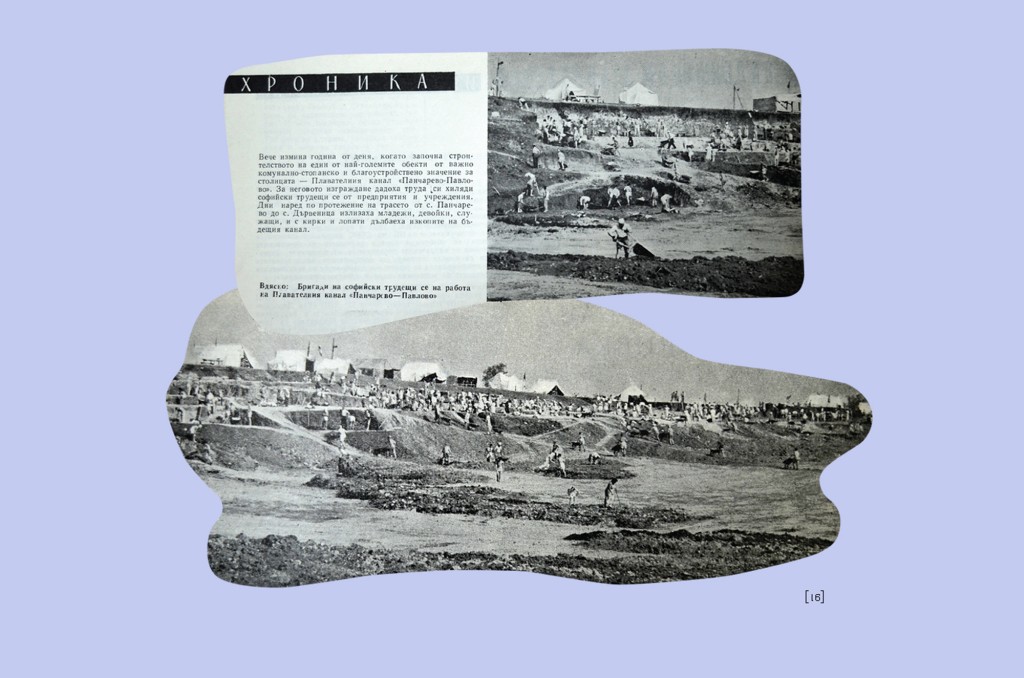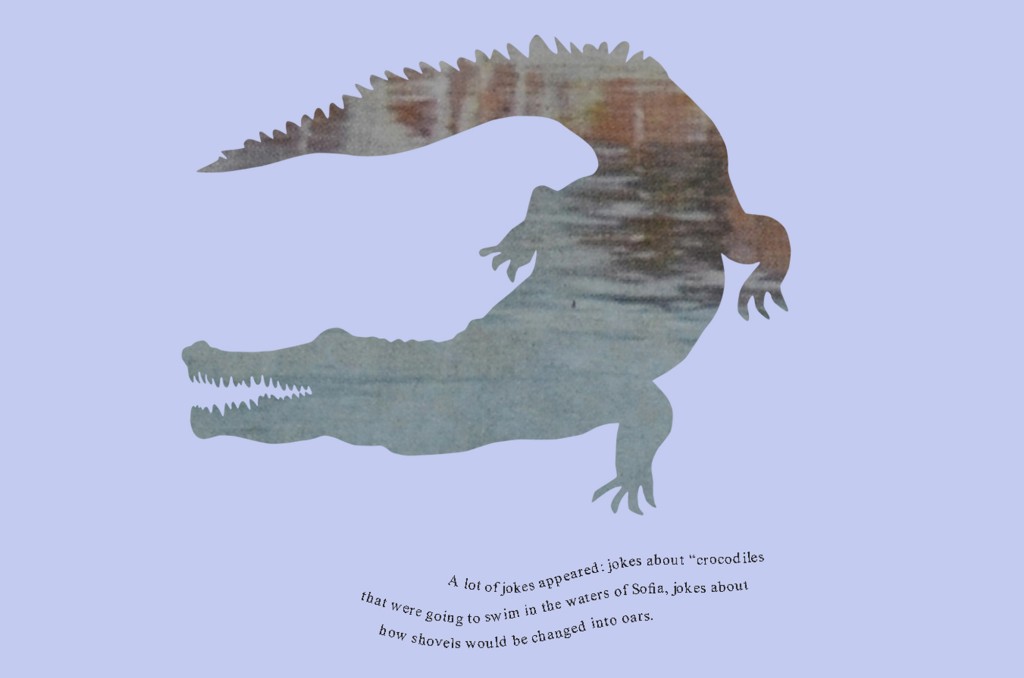Sofia Grand Canal, 2023
Part of the project “New Ecologies” organized by Swimming Pool, Sofia, Bulgaria
curator: Viktoria Draganova
Swimming Pool July 4 – August 10 2023
4 modified digging shovels, acrylic paint, an announcement from the newspaper “Third Age”, a received letter, net-art project "The Sofia Sea"
variable dimensions
Photos by Yana Lozeva & Maria Nalbantova
"Sofia Grand Canal" is a project exploring repressive practices that threaten both the freedom of society and the ecological balance of our surrounding nature through the megalomaniacal geography change projects of the 1950s. The desire to reverse the course of rivers or to dig a navigable canal through the entire city sounds outlandish, but in the late 1950s excavation began on the "Pancharevo-Pavlovo Navigable Canal", a "dream" inspired by Stalin's plan to transform nature at the cost of unpaid, partly superhuman labour. What happens and what are the consequences when certain political decisions interfere with the ecological balance in order to change the landscape entirely? The project builds on the net-art work "The Sofia Sea" on the online platform EXN Lagoon, curated by Chiara Cartuccia in 2022/2023.
Inspired by the successful completion of the gigantic Moscow Canal1, and reviving an original idea dated back to 1938, in the 1950s the Bulgarian Communist regime starts planning for its own geography-bending mega-engineering project. The Sofia Sea2 is the popularised nickname of a construction plan that, in its original ambition, would have allowed to bring the Black Sea inland, to transform the Bulgarian capital into a port-city. A complex and, soon to be found impossible to implement, system of canals would have strengthened the link between Bulgaria and its destiny in the highly contested middle sea, while testing out the government's capacity to control and direct the lives of ordinary citizens.
Nalbantova's fairy-tale-like storytelling guides us through the subsequent phases of promise and demise of an implausible venture. The work traces a process of catastrophic deflation of misplaced ambition, the crumbling down of the aspiration to dominate both geography and people. As the seemingly unrealistic story reaches for its less-than-spectacular conclusion, we witness the transformation of a single case into an all-encompassing manifestation of the mechanics of control and power. A more and more modest techno-utopian endeavour turns into a synecdoche, able to represent the slow collapse of an entire political system, whose ruins still haunt a city, its inhabitants, and its lost sea.
- Chiara Cartuccia
1The Moscow Canal was constructed between 1932 and 1937, employing the forced labour of 200,000 gulag prisoners. It is part of a system of canals that connects the Russian capital with White Sea, Baltic Sea, Caspian Sea, Sea of Azov and Black Sea.
2"The Sofia Sea" is also the title of a essay by dissident Bulgarian writer Georgi Markov.


